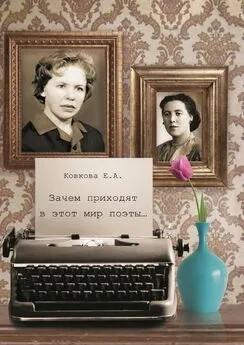Елена Миклашевская - Зачем им столько времен?
- Название:Зачем им столько времен?
- Автор:
- Жанр:
- Издательство:Литагент Ридеро
- Год:неизвестен
- ISBN:9785005033345
- Рейтинг:
- Избранное:Добавить в избранное
-
Отзывы:
-
Ваша оценка:
Елена Миклашевская - Зачем им столько времен? краткое содержание
Зачем им столько времен? - читать онлайн бесплатно ознакомительный отрывок
Интервал:
Закладка:
George (say), «My idea (be) to get to London and do some shopping with the help of this book. I (buy) a hat and a pair of shoes. I (use) this book and (see) how people understand me.»
We (see) a large boot shop near Waterloo Station, and our experiment (begin). The shopkeeper (do) something with a pair of shoes when we (come). George (look) in the red book and (say),
«My friend, Mr X, (recommend) this shop to me.»
In the book, the shopkeeper (say),
«Mr X (be) a nice man, and I (be) very happy to see his friends.»
But our man (say), «I (not/know) him.»
George (look) in his book again and (find) another phrase, «My friend (say) that you (sell) boots here.»
For the first time the man (look) at us. He (begin) to speak getting more and more angry,
«You (think) I (keep) boots to look at them? You (think) I (work) in the shop because I (like) it? What you (think) I (be) – a book collector? You (hear) of a man working in the boot shop and not selling boots? You (think) I (be) an idiot?»
He still (shout) when George (find) the best sentence for the situation and (say),
«I (come) later. Good bye.»
When we (leave) the shop, the man (stand) at the door. He (shout) something that we (not/hear), but people around him (find) it interesting.
Answer the questions:
1. How did George want to use the phrase book?
2. Where did their experiment begin?
3. What made the shopkeeper angry?
4. What was the shopkeeper doing when the friends were leaving the shop?
17. «Three Men on a Bummel» by Jerome K. Jerome
Vocabulary: enemy – враг, irritate – раздражать.
Tenses to use: Present Simple, Past Simple, Past Continuous, Future Simple.
We (get) on the train a minute before it (leave), and I (remember) Uncle Podger. The way from his house to the railway station (take) about eight minutes. My Uncle always (say), «Leave home fifteen minutes before the train, and everything (be) all right.»
What he always (do) (be) to start five minutes before the train and run. I (not/know) why, but it (be) a tradition. Many fat City gentlemen (live) in Ealing in those days and (take) morning trains, and they all (start) late. When we (look) out of the window, they (run) to the station (carry) a black bag and a newspaper in one hand and an umbrella in the other.
My Uncle (not/get) up late. But something always (happen) to him at the last moment.
When he (be) about to leave, he usually (lose) his newspaper.
«I (have) it in my hand a minute ago!» he (exclaim). From his tone you could think that he (be) surrounded by the enemies that (hide) his things just to irritate him.
«You (leave) it in the garden?» my Aunt (ask).
«God bless this woman! I (not/want) a paper in the garden. I (want) it on the train.»
Here somebody (exclaim), «What (be) this?» and (give) him the newspaper. Uncle (open) the bag to put it in, and looking at it, (get) speechless.
«The day before yesterday’s!» he (whisper), too angry to shout, throwing the paper on the table, «I (be) late for the train!»
At last, we (find) his newspaper for him – usually he (sit) on it. Then he (smile). It was a smile of a man who (know) that he (have) to be surrounded by a band of the hopeless idiots.
«All the time, right in front of your noses -!» He (not/finish) the sentence, proud of his self-control.
Answer the questions:
1. Why did the narrator remember Uncle Podger when he was going to be late for the train?
2. Why was Uncle Podger usually late for his morning train?
3. What made him angry?
4. Where was usually the newspaper?
18. «Three Men on a Bummel» by Jerome K. Jerome
Vocabulary: balloonist – воздухоплаватель, bark – зд. рявкнуть, hydrogen gas – водород.
Tenses to use: Present Simple, Past Simple, Past Continuous, Future Simple.
In my early journalistic days, I (work) in a popular newspaper which (give) advice to people about everything – how to marry, how to keep rabbits, how to eat soup.
Once somebody, naming himself «balloonist», (write) to ask us how to produce hydrogen gas. It (be) an easy thing to produce – I (see) that after reading up the subject at the British Museum Library. But I (warn) the «Balloonist» to be very careful.
Ten days later, when we (sit) at our tables (work), a red-faced lady (come) to our office, leading by the hand what, she (explain), (be) her son, aged twelve. The boy (have) a strange expression on his face, and when he (come) nearer, I (understand), why. He (have) no eyebrows and no hair.
«This (be) a nice boy last week, with naturally curly hair,» (say) the lady with her voice going up as she (speak).
«What (happen) to him?» (ask) our chief.
«This (be) what (happen) to him,» (bark) the lady. With these words she (take) a copy of our newspaper with my article about hydrogen gas and (give) it to the chief. He (take) it and (look) it through.
«He (be) «Balloonist?» (ask) the chief.
«He (be) «Balloonist,» (answer) the lady, «the poor child, look at him!»
«I (think), the hair (grow),» (say) the chief.
«May be, it (grow),» (agree) the lady, «but I (want) to know what you (do) for him.»
«I really (not/think) it (be) our fault,» (say) the chief, «he (ask) for the information and he (get) it.»
«Don’t try to be funny about it,» (say) the lady, «or I (go) to court and you all (have) heads like this!» She (mean) like the boy’s.
Our chief (settle) the matter with a five-pound note, which (be) a month’s profit of the paper. The lady (leave), taking her damaged son with her.
Answer the questions:
1. What sort of newspaper did the narrator work in?
2. What question did he have to answer one day?
3. Who came to their office a week later? What did the narrator understand?
4. How did the chief settle the matter?
19. «The Gift of the Magi «by O’Henry
Vocabulary: counter – прилавок, sign – зд. вывеска, comb – гребень.
Tenses to use: Present Simple, Past Simple, Past Continuous, Future Simple
One dollar and eighty seven cents. That (be) all. The next day (be) Christmas. Delia (sit) in her room and (cry) because she (not/have) money to buy a present for Jim. At last she (stop) crying, (go) to the window and (look) out. She (have) an idea. She (put) on her coat and (leave) the house.
Delia (walk) along the street when she (see) a sign «Madam Eloise – HAIR». She (come) in. A fat woman (sit) at the counter.
«You (buy) my hair?» (ask) Delia.
«I (buy) hair», (say) Madam Eloise. «20 dollars», she (say) when she (touch) beautiful brown hair that (fall) like a coat around Delia.
The next two hours Delia (shop) for Jim’s present. At 7 o’clock the dinner (be) ready and Delia (wait). «Oh, I (hope) he (think) I (be) still beautiful», she (think).
The door (open) and Jim (come) in. She could not understand the look on his face.
«Jim, don’t look at me like this!» she (cry). «My hair (grow) very quickly! Look, what a wonderful present I (have) for you!» And Delia (give) Jim a lovely gold chain for his watch. Jim (not/say) a word. He (take) something from his pocket. There (be) the combs – the combs for her beautiful hair. But she (not/have) her long hair!
«Delia», Jim (say),» let’s keep our presents for a time. I (sell) my watch to buy you the combs. And now let’s have dinner».
Answer the questions:
1. Why was Delia sitting in her room crying?
2. What idea did she have suddenly?
3. How did Delia spend two hours after she left Madam Eloise?
4. Why did Jim look at Delia with a strange expression on his face?
5. Why could not Jim and Delia use their presents?
20. «Three Men in a Boat» by Jerome K. Jerome
Vocabulary: tent – палатка, quiet little corner – зд. тихий уголок
Tenses to use: Past Simple, Future Simple, Future Continuous.
We (decide) to start on Saturday. Harris (say), «I (go) to Kingston in the morning. George (meet) us at Chertsey». The next question (be) where to sleep at night. George and I (not/want) to sleep in hotels.
«How beautiful», we (say). «We (sleep) by the river, with the birds, the flowers, trees around us…» I (think) about it…
…At the end of the day the world (be) peaceful and quiet. Our boat (move) into a little corner of the river. There we (put) up our tent, (cook) and (eat) our simple supper. Then we (sit) and (talk) quietly. Sometimes we (stop) for a moment or two and (listen) to the water. The silver moon (shine) down on us. The sound of the water (send) us to sleep and we (dream)…
Then I (imagine) a rainy day…
…We (be) very wet. There (be) a lot of water in the boat. We (get) out of the boat and (try) (put) up a tent. It (be) difficult to put up the tent in a good weather, but in wet weather it (be) impossible. When at last the tent (be) up, we (carry) the things out of the boat. Supper (be) mostly rainwater – rainwater bread, rainwater soup…
So, we (decide) to sleep out in tent on fine nights and in hotel in bad weather.
Answer the questions:
1. When did the friends decide to start their journey?
2. What was the next question to discuss?
3. How does the narrator imagine the end of the day on the river in good weather? In bad weather?
4. What did the friends finally decide?
21. «A Scandal in Bohemia» by Arthur Conan Doyle
Vocabulary: expensive – дорогой, witness – свидетель, blood – кровь
Tenses to use: Present Simple, Past Simple, Present Continuous, Past Continuous, Future Simple
1
For Sherlock Holmes, there (be) only one woman in the world. He (not/love) her, but after their meeting he (not/forget) her.
One evening in March I (visit) my friend at his home in Baker Street. We (sit) and (talk) when there (be) a knock at the door. A tall, strong man (come) into the room. He (wear) expensive clothes and a mask over his face.
«You (can) call me Count von Cramm,» he (say),«a very important person (send) me to ask for your help. I (talk) about the King of Bohemia».
«I (know), Your Majesty,» (say) Holmes. He quietly (smoke) his cigar.
«What! «the man (cry), «you (know) who I (be)!» He (pull) the mask off his face.
«You (be) right. Why I (hide) it? I (be) the King of Bohemia, Wilhelm von Ormstein. I (come) to see you myself because it (must) be a secret. You (understand)?»
«Very well, Your Majesty. Go on,» (say) Holmes.
«Five years ago I (meet) a woman called Irene Adler. I (love) her for a while. After I (leave) her, I (write) her some letters. And she (have) a photograph with us both.»
«That (be) a mistake, Your Majesty».
«I (know). But I (be) very young. Soon I (go) to marry Clotilde Lothman, daughter of King of Scandinavia. She never (marry) me if she knows about Irene… But you (not/know) Irene Adler. She can be as hard as a man. She (be) angry when I (leave) her, and she (not/want) me to marry another woman. I (be) sure she (send) that photograph to Clotilda’s family, and there (be) a terrible scandal. We (must) get the photo before she sends it.»
«I (be) sure we (find) it», (say) Holmes. «And the address of the young woman?»
«Briony Lodge, Serpentine Avenue, St. John’s Wood, London».
«Good night, Your Majesty, (say) Holmes, «I (hope) to have some good news for you soon».
Читать дальшеИнтервал:
Закладка:
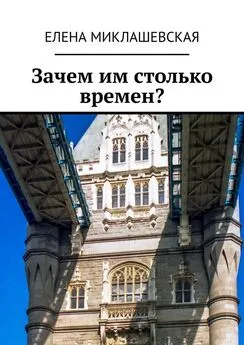

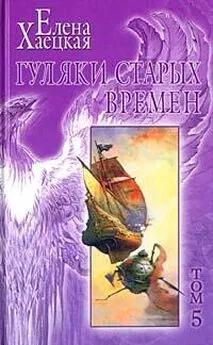
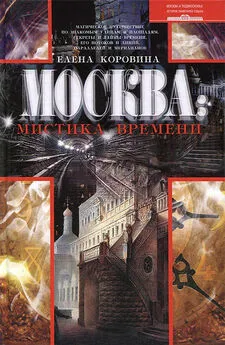
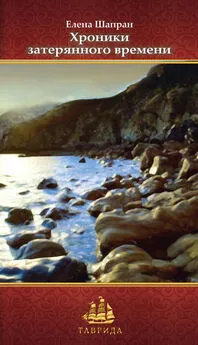
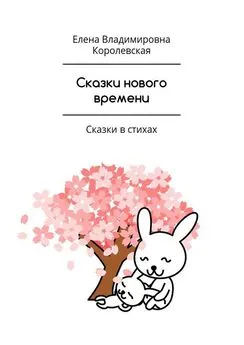
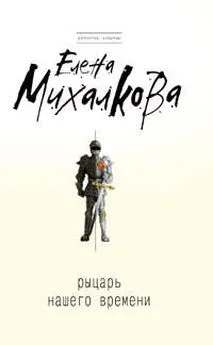
![Елена Гордина - Зачем ты это сделала? [litres с оптимизированной обложкой]](/books/1145711/elena-gordina-zachem-ty-eto-sdelala-litres-s-opti.webp)

